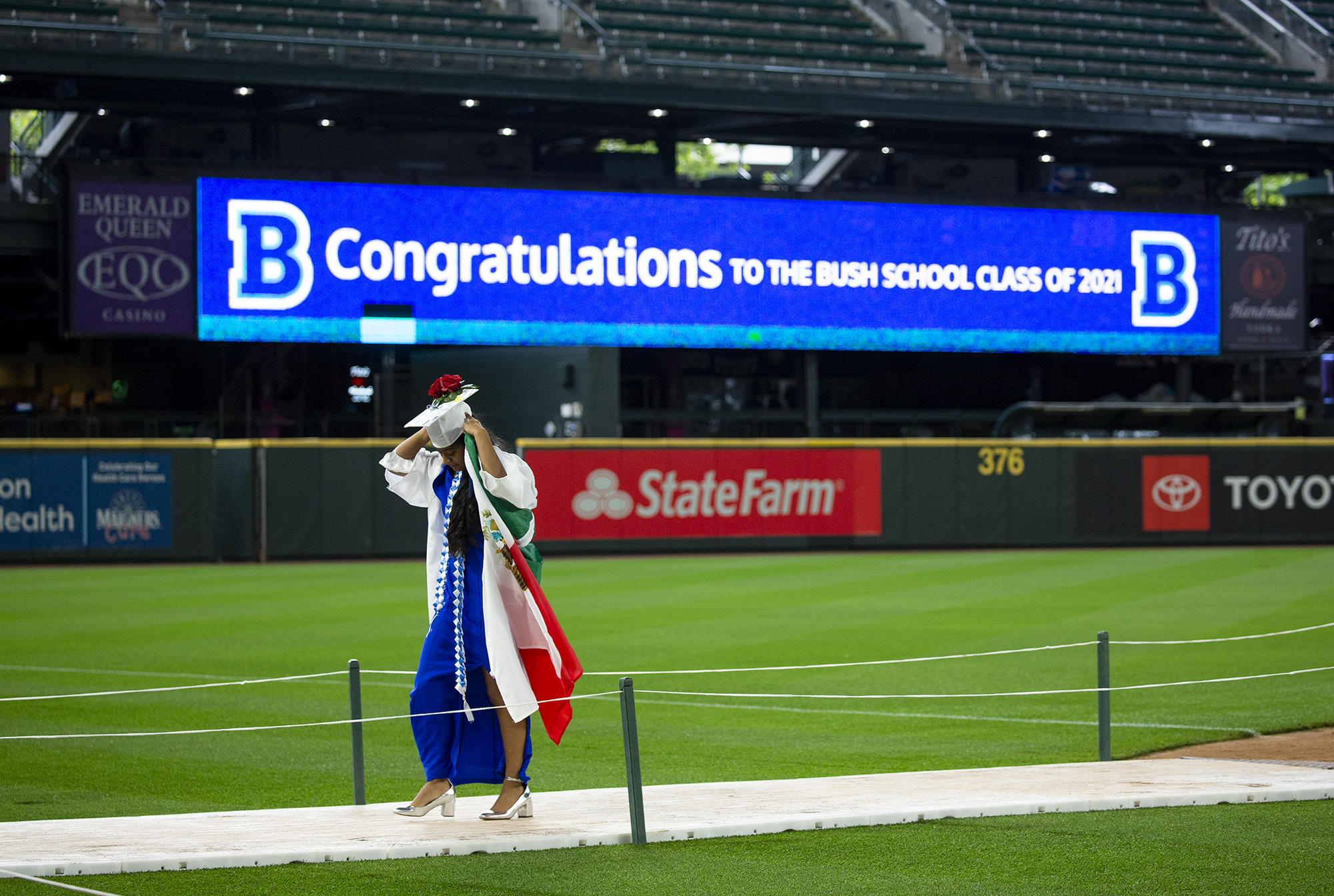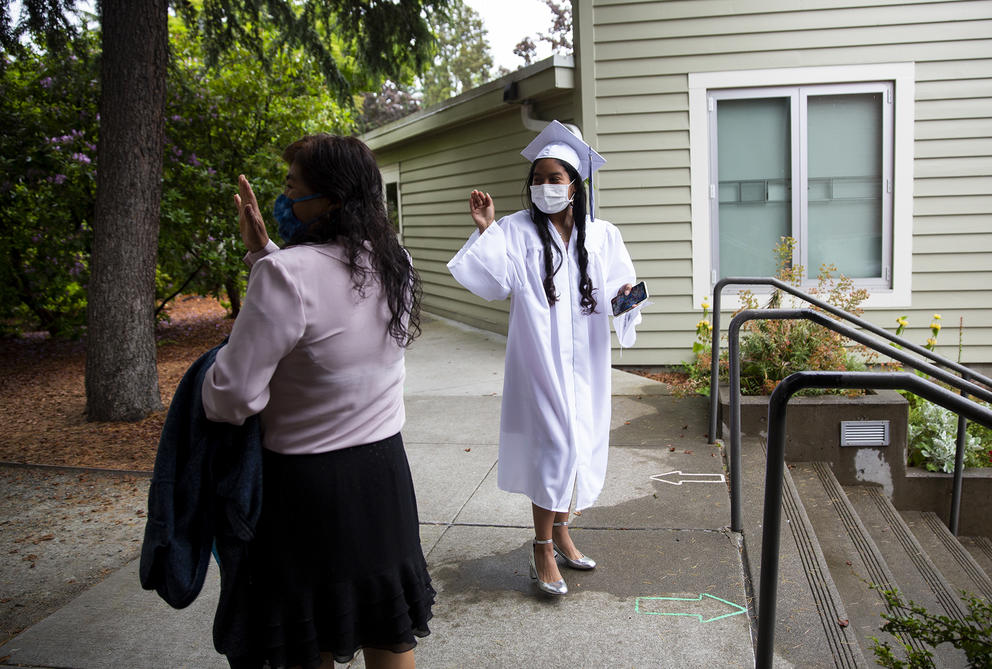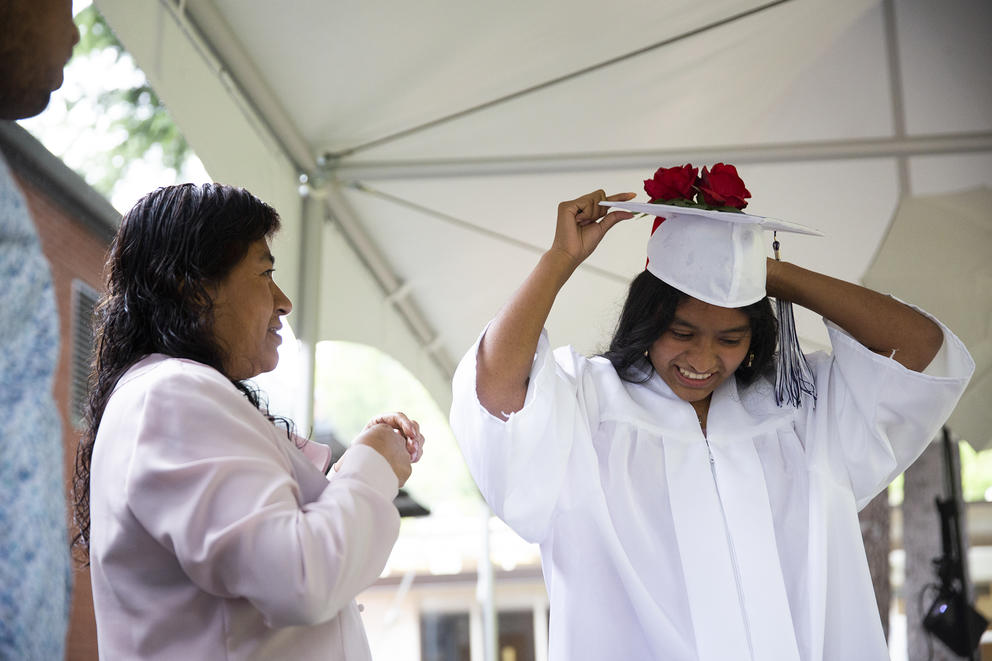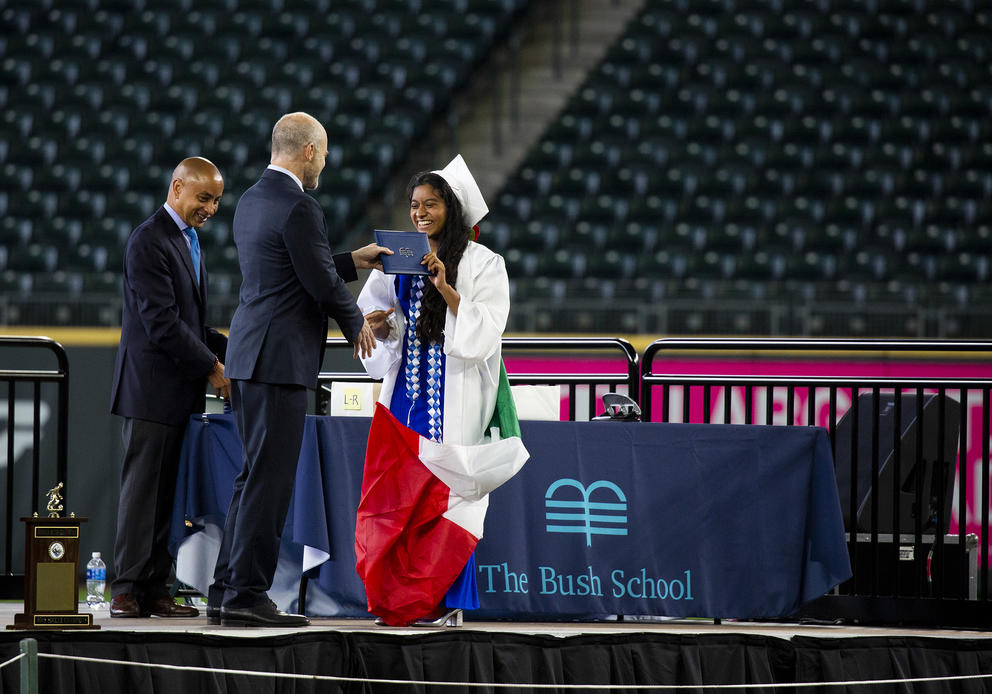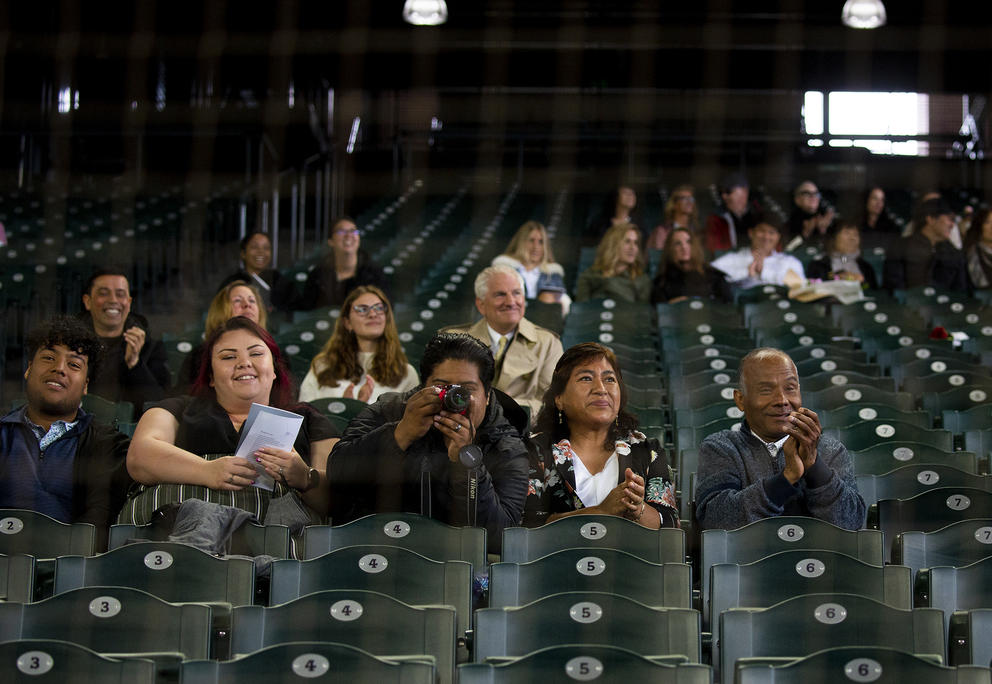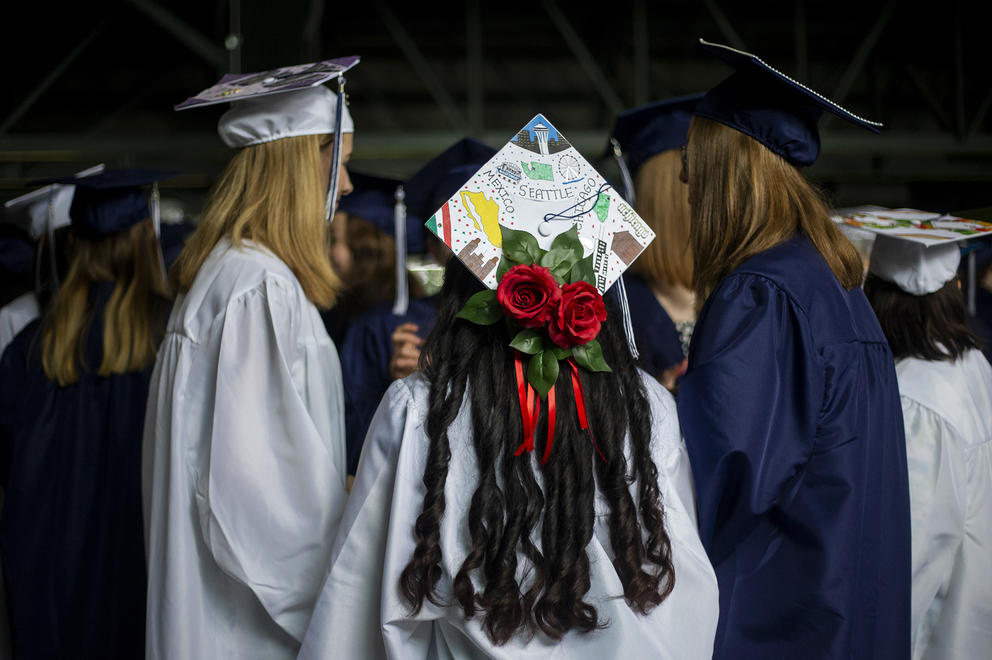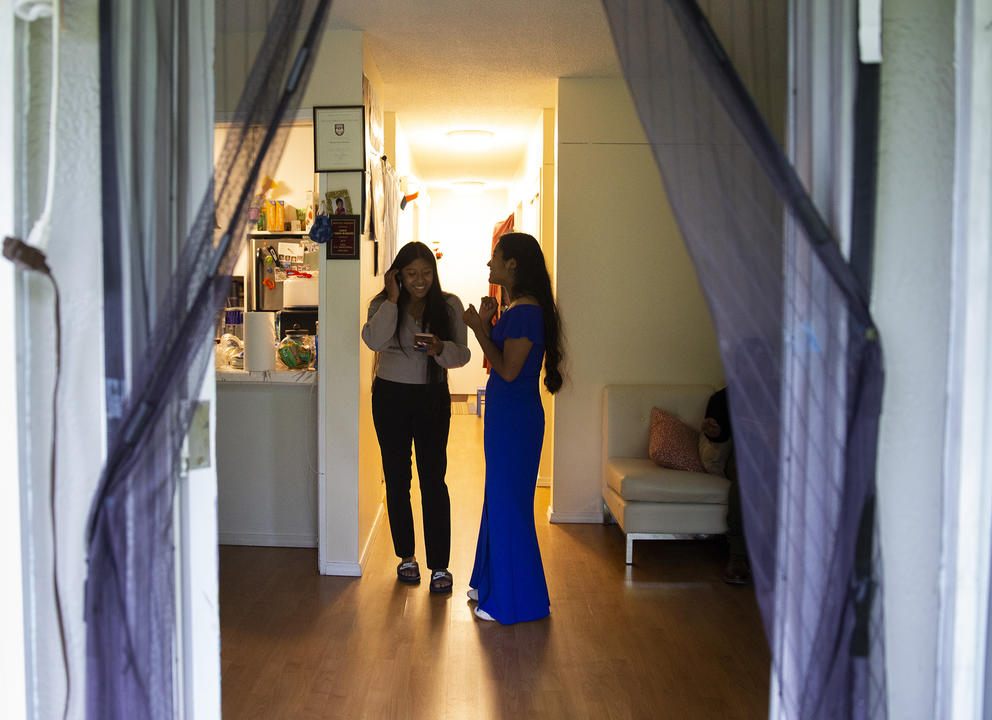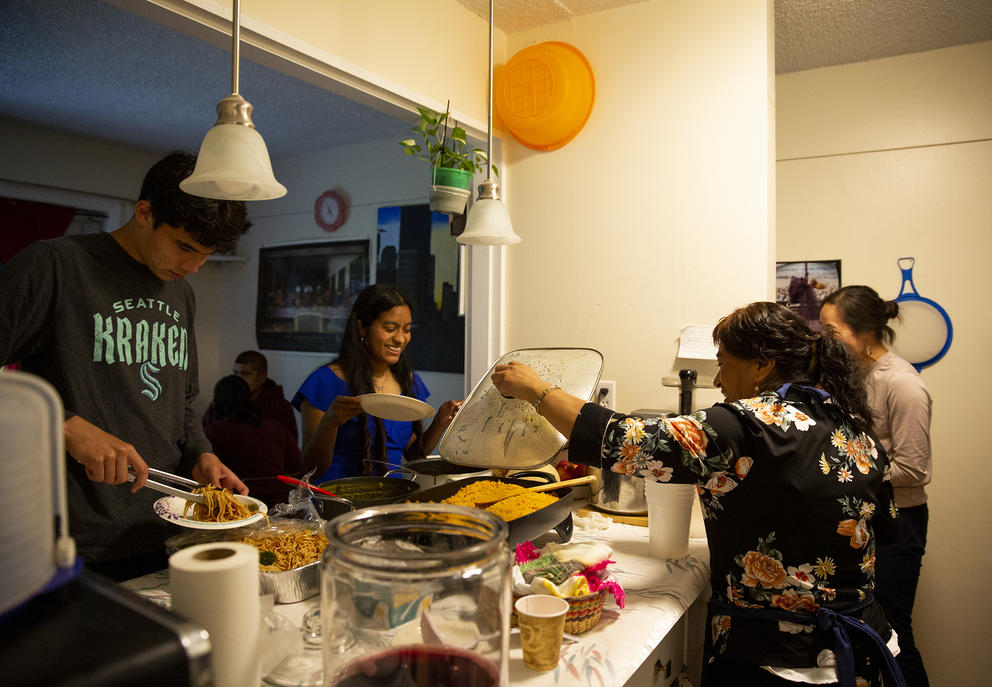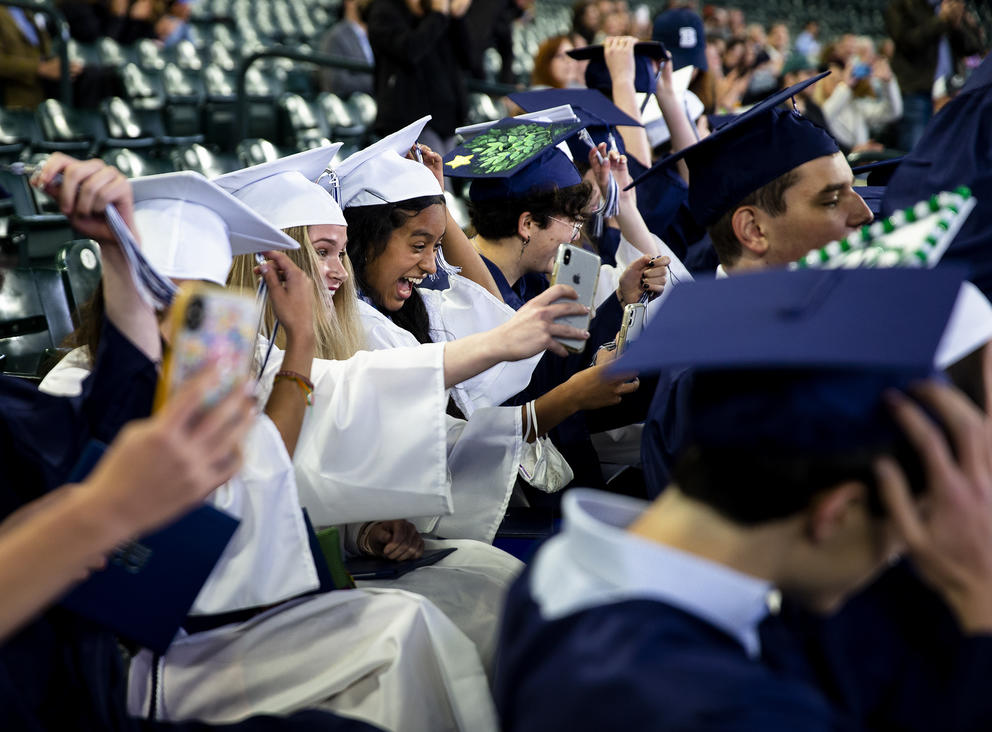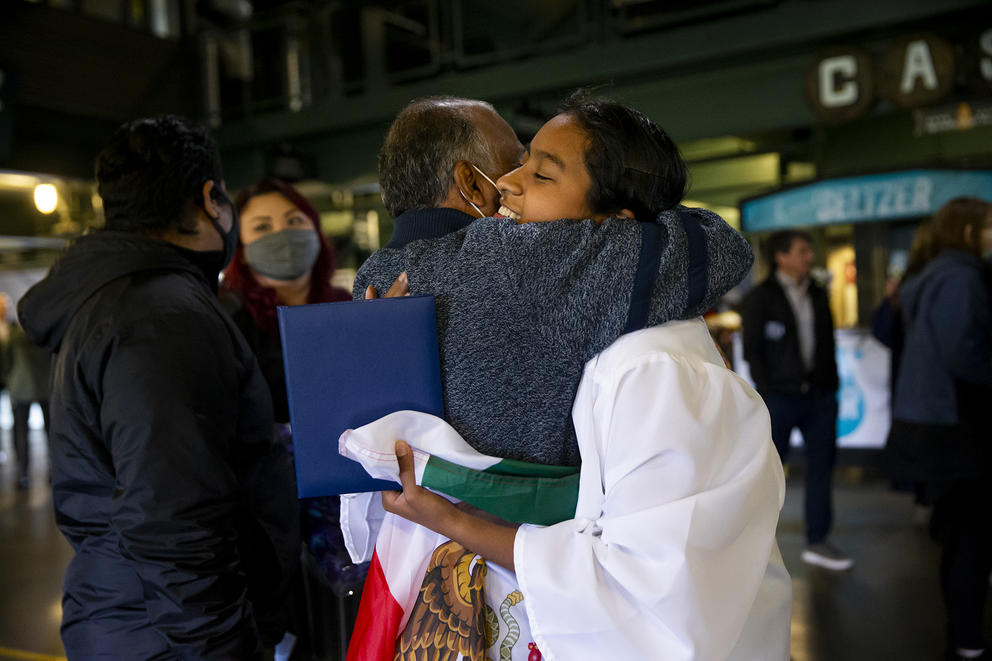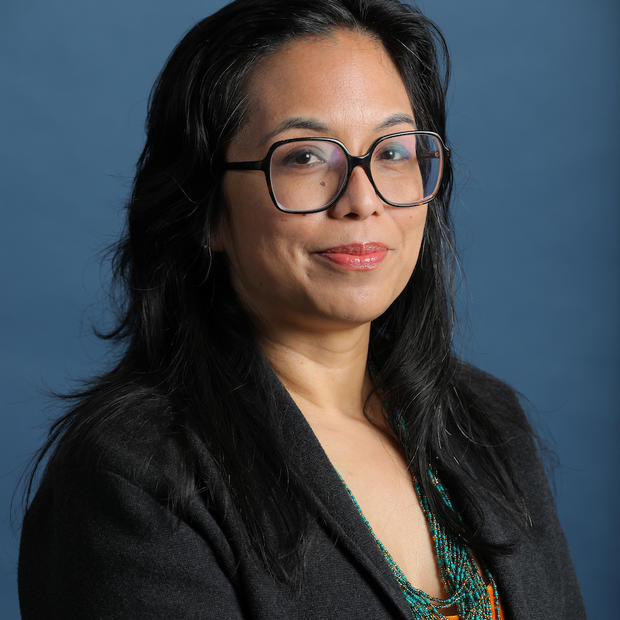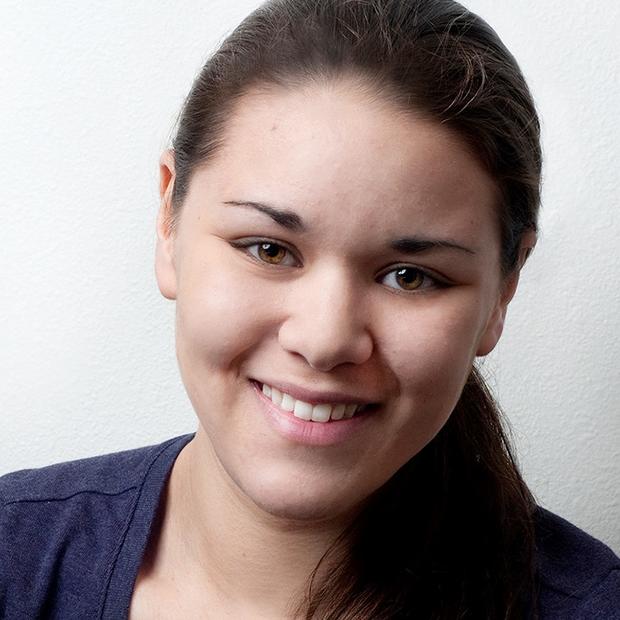But for Donaji and the rest of this year’s graduating classes throughout Washington state, the 2020-2021 school year had different plans for them — plans marked by constant change.
But the year was also marked with a sense of resilience.
“This is kind of like a stereotype, but you know, like how older people are like, ‘Back in my day, we had to walk five miles to get to school,’ ” said Jacob Hutchens, a senior at Auburn High School. “I kind of feel like our generation is probably one of the hardest working as of right now. Because we had to be.”
While many schools are holding adapted in-person graduation ceremonies this week — as opposed to the car parades and virtual celebrations that marked the send-off events for last year’s class — big world events throughout this past year seemed to hit the class of 2021 harder.
With the coronavirus pandemic and the worldwide protests for racial justice last summer, the entire senior year of the class of 2021 has been marked by uncertainty and change.
In many ways, however, these events didn’t add new uncertainties and concerns to high school, but exacerbated existing ones, said Tremaine Frazier, an adviser with the College Success Foundation.
“You know, we've always seen that insecurity of food and lack of housing but I think the biggest thing that I've noticed this year was students’ mental health. That, I think, was not new to us, but just in the rates and the depth that it started happening.”
But amid the challenges, something else became clear.
“This class really has just that sense of grit,” Frazier said. “Grit, passion and perseverance ... just taking ownership of their situations and making the best out of what the situation was given to them.”
Donaji said that despite the challenges of this past year, she felt a sense of hope.
“I think it would be how persevering people are,” Donaji said. “I feel very optimistic.”
‘A lot lonelier than I definitely imagined’
In many ways, Donaji Torres-Marquez’s senior year experience was different from what she had expected.
“I think it was a lot lonelier than I definitely imagined,” said Donaji, 18.
The senior had planned to go big her final year.
“I mean, I had been planning to go all out senior year,” she said. “I really wanted to end senior year enjoying this community that I'm part of, making, creating some sort of change or leaving a little bit of an imprint on the younger students.”
The Student Wellness Center, a student group that promotes mental health awareness among students in earlier grades, couldn’t connect with their younger peers in person. The Latinx Club held meetings over Zoom. Instead of playing volleyball before crowds of friends and fans, only families were allowed at games this year.
“And I think it was just kind of hard to know that we really missed out on a lot of our ‘final’ things,” Donaji said.
“I was really looking forward to that because I felt like I could finally be a lot more confident in myself. And, you know, then, not being able to do that in an in-person setting was hard. But I still tried to do what I could online and, like, be as engaged as I could,” she said.
That wasn’t always easy, especially when the school offered the option for students to return midyear. Donaji decided to keep learning remotely.
So for her, that meant watching her teachers for part of the year try to teach both in-person students and students watching from home.
“They would be in their classroom with the students. And then it would be other remote students on a screen, and a small mic that didn't exactly capture everything,” she said. “Hearingwise, it was kind of hard. And I think it was hard to try to engage both people that were in-person and online.
“I would never want to do it again. I don't think it was a great experience for anyone, or for most people.”
She said the importance of student mental health came to the forefront as well.
“Being on the screen for so long every day is really tiring, mentally, for everyone — I think even teachers,” Donaji said. Teachers tried to get students to take screen breaks, to “refresh their brains,” she noted.
Donaji is headed to University of Chicago in the fall.
“I'm hoping by next year, at least, maybe college will be some sort of normal,” she said.
‘Having to relearn how to learn again’
“It was simultaneously the weirdest year I've ever had, while also being probably one of the best years I've ever had,” said graduating Auburn HIgh School senior Jacob Hutchens.
“This year,” he said, “has been just me constantly having to learn how to adapt, and kind of having to relearn how to learn again, without the structure of school. And just all those basic needs that get met while you're in a building, and you're kind of being told where to go. And all of a sudden, you get transitioned to ‘alone in my room all day.’ ”
For Jacob, transferring to Auburn High School in his junior year had finally provided some stability after moving between several schools since freshman year.
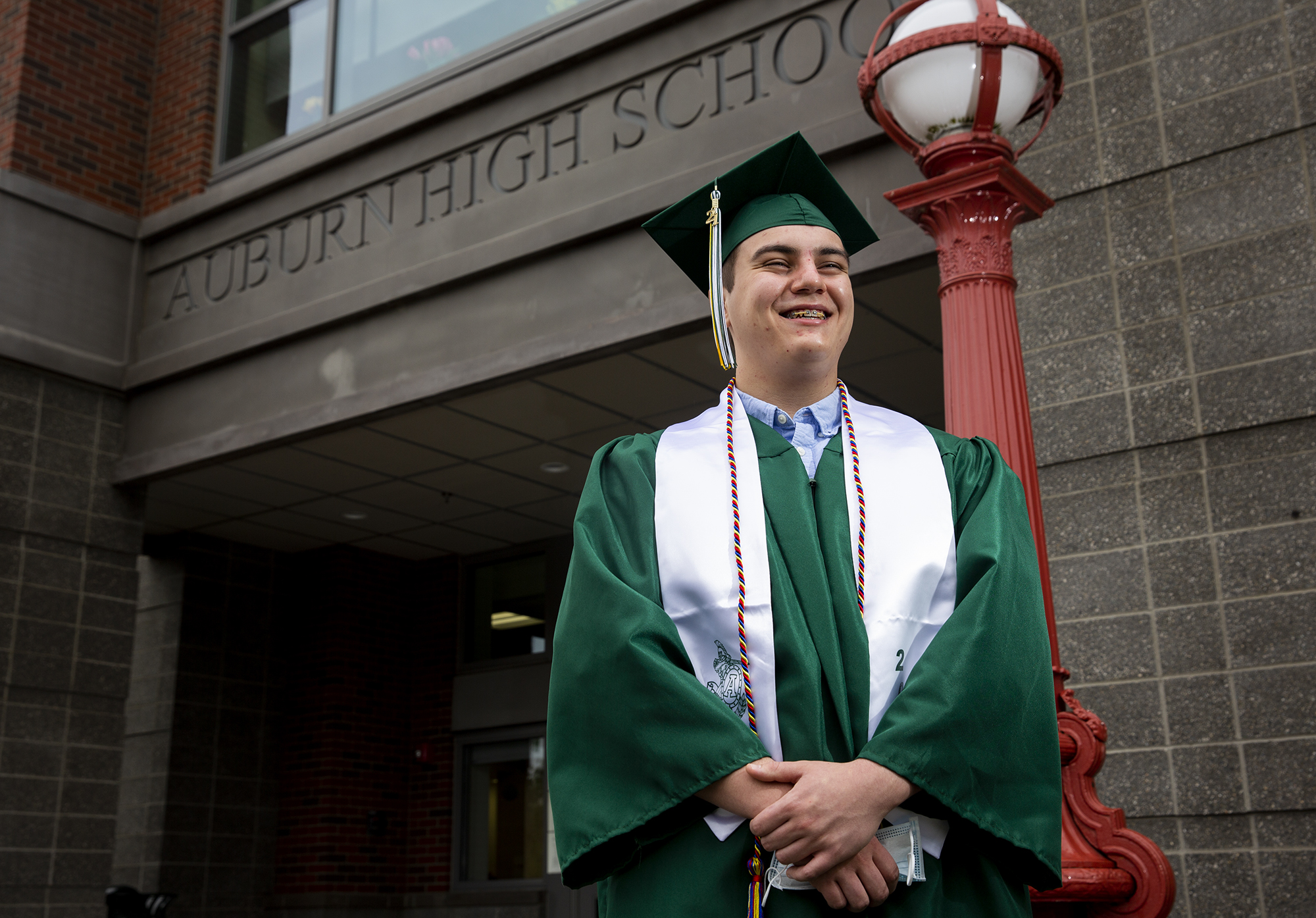
“And then that's when COVID hit,” he said. “I remember being in my AP U.S. history class. And my teacher was just like, ‘So yeah, we're not going to be coming back to school for the next 10 weeks.’ ”
“And at first, I was like, no way. We're gonna have a big break. And I could just, you know, hang out at home,” he said.
That got old quickly.
“I love working with my hands. I need to be on my feet and kind of get my blood pumping in the morning so that I can be ready to go for whatever I have to do next. And so I didn't have that anymore, right,” he said. “I had the gym, I had friends to talk to, and I was doing welding and woodshop, and I was taking all my AP classes. And it was doing really well. And then all of that kind of got taken away from me.”
His grades and his mood suffered as the pandemic wore on.
“And I didn't realize that at first, how badly that was going to affect me. But after, like, I think three or four weeks, I was just like, I hate being in my room, I gotta get out of here, I gotta do something,” he said. “And I just remember one day I'm like, I'm not happy. I'm not happy with the way things have been going. And I don't know how much longer I can go like this. I don't know how much longer I can just be in my room and not do anything.”
Jacob said he was lucky that his dad, who works at the school district, helped him figure out a system that met his needs at home. He took more walks, learned how to cook and joined a gym to help maintain his need to be physically active.
What he gained this year was a chance to get to know his classmates in a new, perhaps deeper and more empathetic, way. Some of his fellow students were working at a job, took care of siblings and went to school, all at the same time. For some, school was their only escape from a bad situation at home.
“And now we've sort of shut them in their home with whatever issues or problems that they may be struggling with,” he added.
Even after Auburn High School offered a chance to return to in-person learning, Jacob opted to finish the year remotely.
“I would not say that I'm done adapting at all. I mean, it's rough. Because the longer I stay away from school, and people and stuff like that, the harder it gets to want to go back,” he said.
And despite all the challenges, some high school experiences didn’t change. Jacob said the event with the most impact on him was the day he learned he got a full-ride scholarship to Whitworth University in Spokane.
“That was life-changing for me. I finally knew that what I was doing with my life was heading in the right direction,” he said. “I'm doing what I want to do, finally.”

